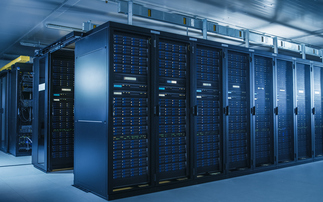Texas Memory Systems to introduce a SAN appliance featuring 2TB of Flash capacity
Texas Memory Systems (TMS) will raise the bar in solid-state storage in November by introducing a storage area network (SAN) appliance featuring 2TB of Flash capacity and 64GB of DDR cache memory. ...
To continue reading this article...
Join Computing
- Unlimited access to real-time news, analysis and opinion from the technology industry
- Receive important and breaking news in our daily newsletter
- Be the first to hear about our events and awards programmes
- Join live member only interviews with IT leaders at the ‘IT Lounge’; your chance to ask your burning tech questions and have them answered
- Access to the Computing Delta hub providing market intelligence and research
- Receive our members-only newsletter with exclusive opinion pieces from senior IT Leaders



















